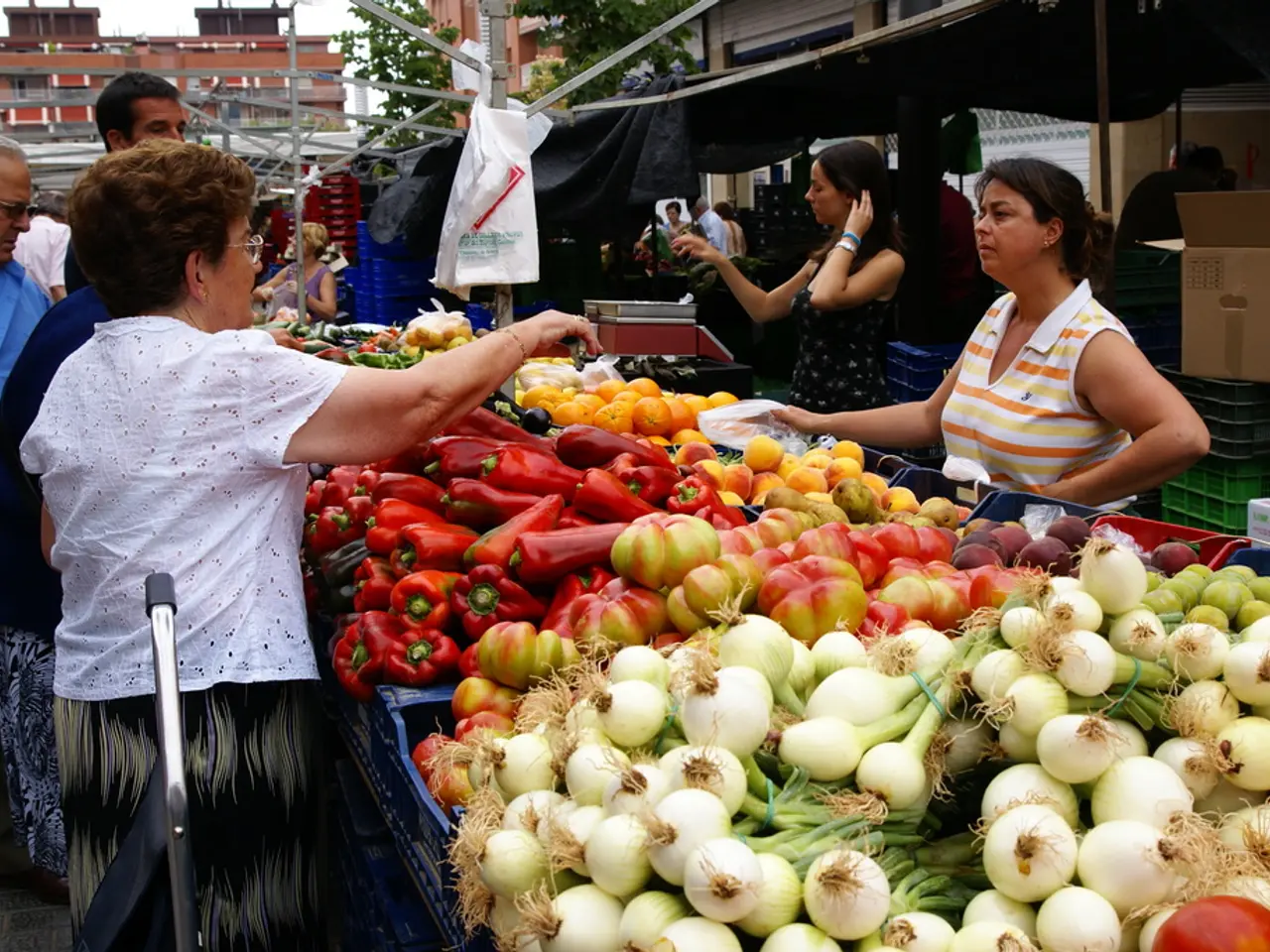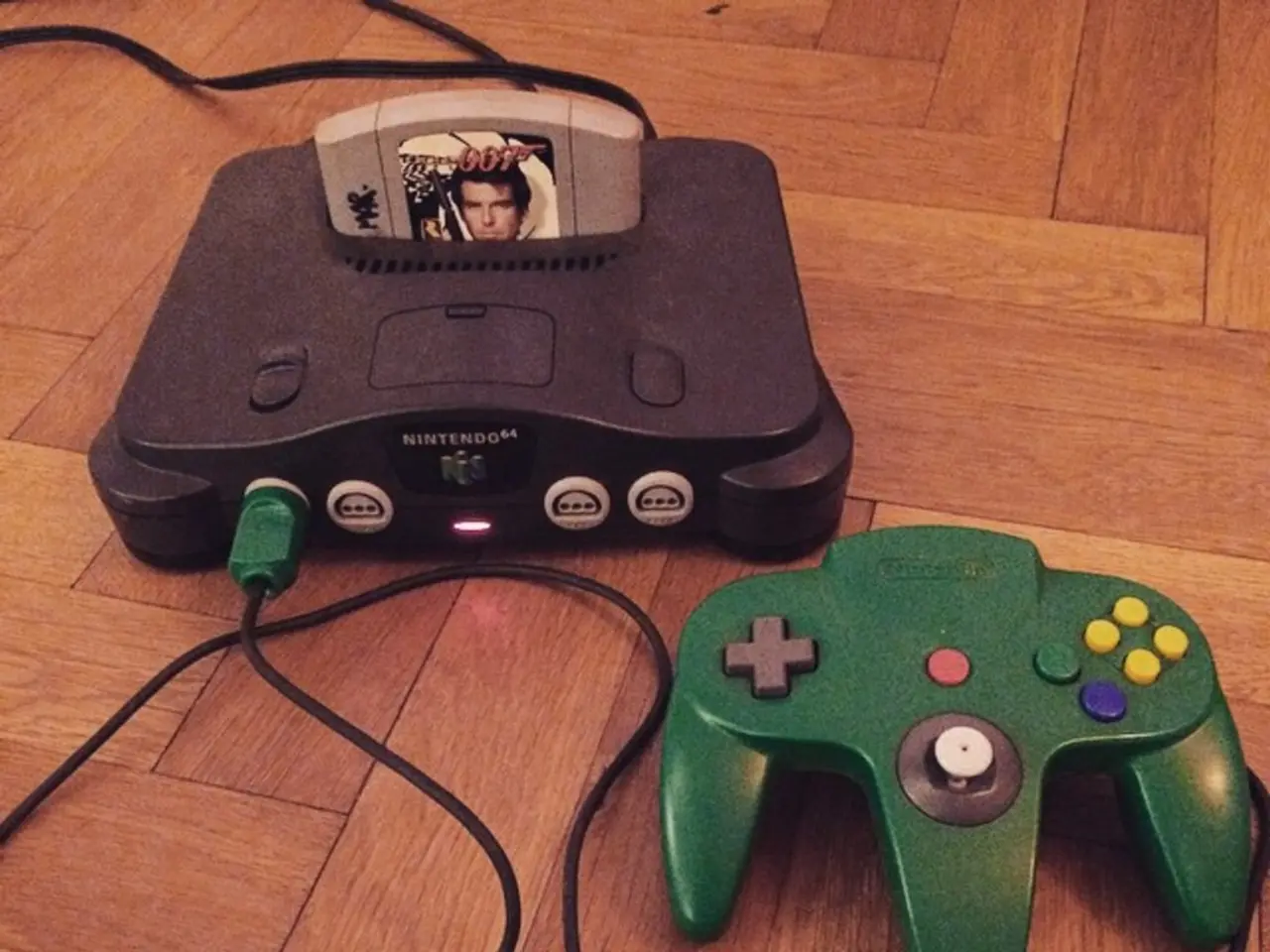Recycling of Plastic Materials
New Zealand is taking significant steps towards reducing plastic waste and improving recycling outcomes. The government has announced a three-stage plan to phase out plastics that are hard to recycle, starting in 2022 [1]. This plan aims to remove more than 2 billion single-use plastic items from landfills or the environment each year [1].
The lightweight and unbreakable nature of plastic has long been a boon for production and transportation costs. However, the government recognises the need to address problematic plastics, particularly single-use and complex packaging. By promoting policies to reduce or eliminate these items, they hope to reduce waste streams that are difficult to recycle [1].
One such problematic plastic is soft plastic, a subset of hard-to-recycle plastics. Soft plastics, such as grocery bags, can jam recycling machinery and must not be placed in regular kerbside recycling bins [5]. Currently, soft plastics recycling in New Zealand is specialist rather than mainstream, commonly available through supermarket drop-off points [5].
However, innovative recycling methods are emerging. Initiatives like partnerships to convert soft plastics into useful products, such as pyrolysis oil, are being developed. This oil can be refined and reprocessed into recycled polypropylene (PP) film, offering an innovative recycling pathway for soft plastics [4].
New Zealand's commitment to phasing out single-use and hard-to-recycle plastic packaging by mid-2025 is part of a broader effort to reduce plastic waste and improve recycling outcomes [1]. This aligns with regional trends toward expanding recycling capabilities and improving collection systems seen in Asia-Pacific contexts [2].
In addition to these efforts, the government is working with stakeholders and business groups to formulate a plan for the phase-out of types of expanded polystyrene, single-use cups, and wet wipes [1]. The Pact Group, which acquired Flight Plastics in 2021, continues this work under the name Pact Packaging [3].
Flight Plastics, a positive case study for developing local New Zealand-based closed-loop recycling solutions, opened New Zealand's first PET wash plant in 2017 [2]. This plant processes locally collected PET plastic and transforms it into new packaging for various foods [2].
Moving to a circular economy is seen as a way to deal with plastic waste and pollution generated from the 'throw-away culture'. Closed-loop recycling, a process by which a product is used, recycled, and then made into a new product without ever becoming 'waste', is a key aspect of this transition [6].
Plastic waste currently takes up approximately 20% of a modern landfill and can take hundreds of years to break down [7]. With an estimated 14-18% of plastic waste being recycled globally [8], it is clear that innovative solutions like those being developed in New Zealand are crucial in addressing this global issue.
References:
[1] New Zealand Government (2021). Three-stage plan to phase out plastics that are hard to recycle in New Zealand
[2] Asia-Pacific Economic Cooperation (2020). APEC Recycling Best Practices: Soft Plastics
[3] The Pact Group (n.d.). Pact Group acquires Flight Plastics
[4] Plastics New Zealand (2020). Soft Plastics Recycling in New Zealand
[5] Ministry for the Environment (2021). Recycling in New Zealand
[6] Ellen MacArthur Foundation (2020). The New Plastics Economy Global Commitment
[7] Zero Waste New Zealand Trust (2021). Plastic Waste in New Zealand
[8] United Nations Environment Programme (2020). Plastics: The Roadmap to a Sustainable Future
- In an effort to combat plastic waste, New Zealand aims to remove over 2 billion single-use plastic items annually from landfills or the environment, as part of a three-stage plan announced in 2021.
- Despite the advantages of plastic in production and transportation, the government recognizes the need to address problematic plastics, such as single-use and complex packaging.
- Soft plastic, a subset of hard-to-recycle plastics, is a particular concern due to its ability to jam recycling machinery and its improper disposal in regular kerbside recycling bins.
- Innovative recycling methods are being developed in New Zealand, including partnerships to convert soft plastics into useful products like pyrolysis oil, which can be refined and reprocessed into recycled polypropylene (PP) film.
- The government's plan also includes the phase-out of types of expanded polystyrene, single-use cups, and wet wipes, working with stakeholders and business groups to achieve this goal.
- The Pact Group, having acquired Flight Plastics in 2021, continues to work towards local closed-loop recycling solutions, as demonstrated by Flight Plastics' opening of New Zealand's first PET wash plant in 2017.
- Transitioning to a circular economy, which involves dealing with plastic waste and pollution generated by a 'throw-away culture', is seen as a crucial step. Closed-loop recycling, a process by which a product is recycled and made into a new product without ever becoming 'waste', is a key aspect of this transition.
- Plastic waste currently takes up around 20% of a modern landfill and can take hundreds of years to break down, highlighting the need for innovative recycling solutions like those being developed in New Zealand.
- With only 14-18% of plastic waste being recycled globally, it is evident that countries like New Zealand, with their commitment to reducing plastic waste and improving recycling outcomes, play a vital role in addressing this global issue.




